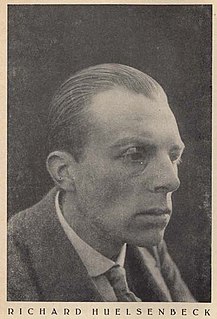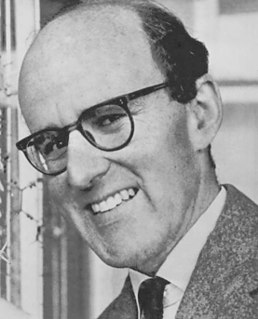A Quote by Ludwig van Beethoven
What will be the judgment a century hence concerning the lorded works of our favorite composers today? Inasmuch as nearly everything is subject to the changes of time, and - more's the pity- the fashions of time, only that which is good and true will endure like a rock and no wanton hand will ever venture to defile it. Then, let every man do that which is right, strive with all his might towards the goal which can never be obtained, develop to the last breath the gifts with which the gracious Creator has endowed him, and never cease to learn. For life is short, art eternal.
Quote Topics
Art
Breath
Cease
Century
Changes
Composers
Concerning
Creator
Develop
Endowed
Endure
Eternal
Ever
Every
Every Man
Everything
Fashions
Favorite
Gifts
Goal
Good
Gracious
Hand
Hence
Him
His
Judgment
Last
Learn
Life
Life Is
Life Is Short
Like
Man
Might
More
Nearly
Never
Obtained
Only
Our
Pity
Right
Rock
Short
Strive
Subject
Then
Time
Today
Towards
True
Venture
Wanton
Which
Will
Works
Related Quotes
As man reaches out toward the twenty-first century, he will learn to be suspicious of all ideas that are not formulated so that they can be tested by observation. He will realize that the history of human thought shows that the ideas of which we are surest are the ones we most need to test. He will realize that his common sense only mirrors his training and experience. What seems natural and right to him is usually a reflection of the conditions under which he spent his first decade of life.
When the first time of love is over, there comes a something better still. Then comes that other love; that faithful friendship which never changes, and which will accompany you with its calm light through the whole of life. It is only needful to place yourself so that if it may come, and then it comes of itself. And then everything turns and changes itself to the best.
We dress our garden, eat our dinners, discuss the household with our wives, and these things make no impression, are forgotten next week; but in the solitude to which every man is always returning, he has a sanity and revelations, which in his passage into new worlds he will carry with him. Never mind the ridicule, never mind the defeat: up again, old heart! — it seems to say, — there is victory yet for all justice; and the true romance which the world exists to realize, will be the transformation of genius into practical power.
I believe that pity is a law like justice, and that kindness is a duty like uprightness. That which is weak has a right to the kindness and pity of that which is strong. In the relations of man with the animals...there is a great ethic, scarcely perceived as yet, which will at length break through into the light, and which will be the corollary and the complement to humans ethics. Are there not here unsounded depths for the thinker? Is one to think oneself mad because one has the sentiment of universal pity in one's heart?
Art in its execution and direction is dependent on the time in which it lives, and artists are creatures of their epoch. The highest art will be that which in its conscious content presents the thousandfold problems of the day, the art which has been visibly shattered by the explosions of last week The best and most extraordinary artists will be those who every hour snatch the tatters of their bodies out of the frenzied cataract of life, who, with bleeding hands and hearts, hold fast to the intelligence of their time.
The twenty-first century will be a time of awakening, of meeting the creator within. Many beings will experience oneness with God and with all life. This will be the beginning of the golden age of the new human, of which it has been written; the time of the universal human, which has been eloquently described by those with deep insight among you.
It is the Spirit of Christ in us that will draw satan's fire. The people of the world will not much care what we believe and they will stare vacantly at our religious forms, but there is one thing they will never forgive us-the presence of God's Spirit in our hearts. They may not know the cause of that strange feeling of antagonism which rises within them, but it will be nonetheless real and dangerous. satan will never cease to make war on the Man-child, and the soul in which dwells the Spirit of Christ will continue to be the target for his attacks.
The day is not far distant when the man who dies leaving behind him millions of available wealth, which was free for him to administer during life, will pass away unwept, unhonored, and unsung, no matter to what uses he leave the dross which he cannot take with him. Of such as these the public verdict will then be: The man who dies thus rich dies disgraced. Such, in my opinion, is the true gospel concerning wealth, obedience to which is destined some day to solve the problem of the rich and the poor.
If at any time I declare concerning a nation or a kingdom, that I will pluck up and break down and destroy it, and if that nation, concerning which I have spoken, turns from its evil, I will repent of the evil that I intended to do to it. And if at any time I declare concerning a nation or a kingdom that I will build and plant it, and if it does evil in my sight, not listening to my voice, then I will repent of the good which I had intended to do to it.
The Christian life is a long and continual tendency of our hearts toward that eternal goodness which we desire on earth. All our happiness consists in thirsting for it. Now this thirst is prayer. Ever desire to approach your Creator, and you will never cease to pray. Do not think it necessary to pronounce many words.
Step back in time; look closely at the child in the very arms of his mother; see the external world reflected for the first time in the yet unclear mirror of his understanding; study the first examples which strike his eyes; listen to the first words which arouse within him the slumbering power of thought; watch the first struggles which he has to undergo; only then will you comprehend the source of his prejudices, the habits, and the passions which are to rule his life. The entire man, so to speak, comes fully formed in the wrappings of his cradle.
Scientists like myself merely use their gifts to show up that which already exists, and we look small compared to the artists who create works of beauty out of themselves. If a good fairy came and offered me back my youth, asking me which gifts I would rather have, those to make visible a thing which exists but which no man has ever seen before, or the genius needed to create, in a style of architecture never imagined before, the great Town Hall in which we are dining tonight, I might be tempted to choose the latter.
The heavenly bodies are nothing but a continuous song for several voices (perceived by the intellect, not by the ear); a music which... sets landmarks in the immeasurable flow of time. It is therefore, no longer surprising that man, in imitation of his creator, has at last discovered the art of figured song, which was unknown to the ancients. Man wanted to reproduce the continuity of cosmic time... to obtain a sample test of the delight of the Divine Creator in His works, and to partake of his joy by making music in the imitation of God.









































